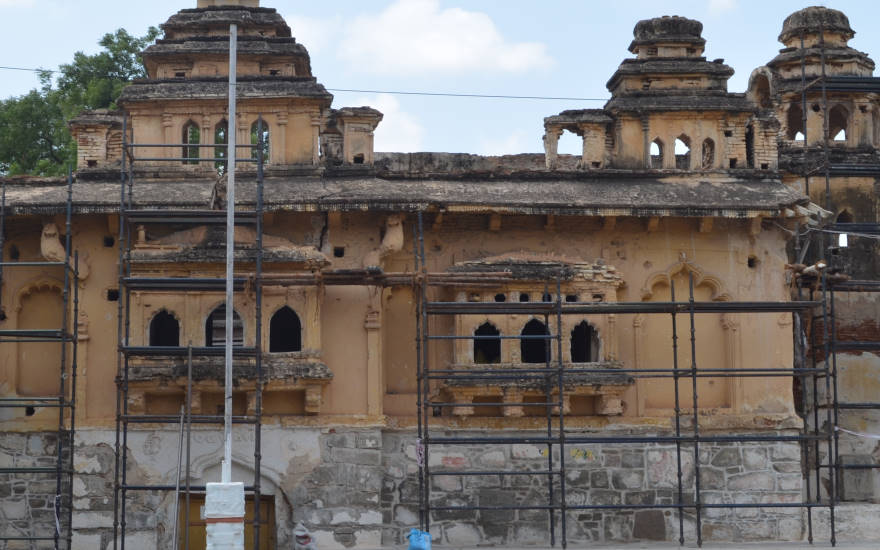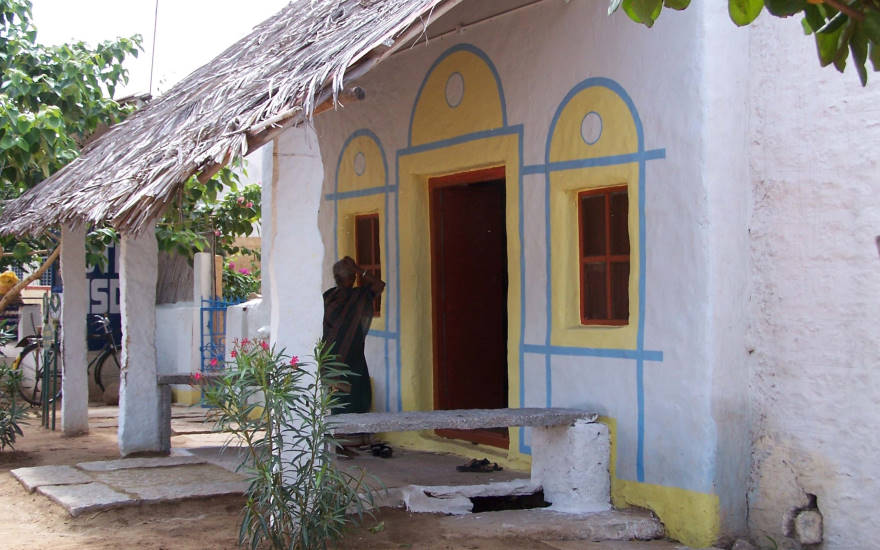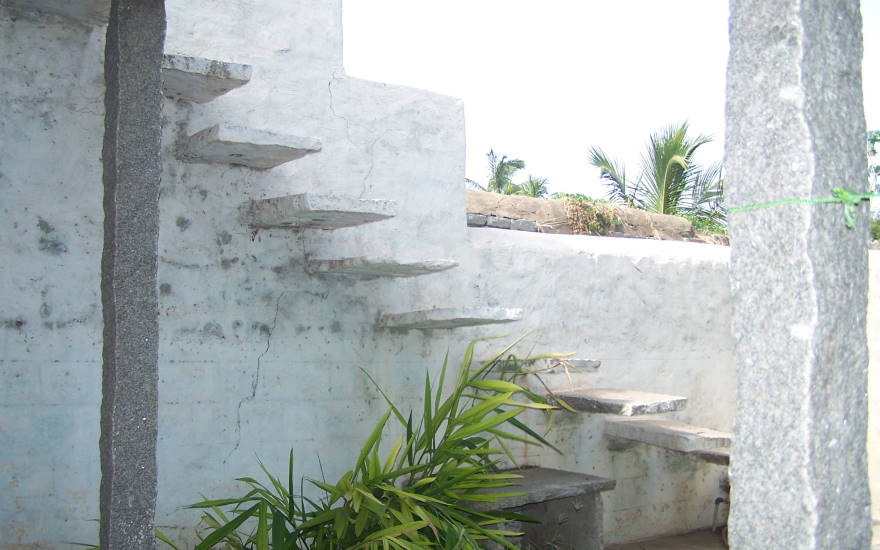TKT has restored, redesigned and rehabilitated a traditional vernacular house in Anegundi with financial assistance from TEMA DURING 2004-2005, a Swedish company, was channeled through UNESCO towards the construction of this centre. It collects documents and provides information on Anegundi and The Hampi World Heritage Site while generating awareness about the values of Cultural resources for the community and visitors to the site. It is an information centre on TKT’s work and acts as a home for Volunteers and Resource people’s accommodation at free of cost. It also acts as a small meeting place.
TKT worked on a concept of setting up of business incubators in restored traditional houses thereby integrating architectural conservation with small business enterprises which the locals maintain and manage.
Under cultural heritage conservation the revival of folk traditions and folk arts is undertaken while activities under Natural Conservation include avenue plantation, awareness campaigns and workshops on nature conservation, documentation of the ‘available bird species of the area’, photo documentation of the landscape etc.
We have treated the humble architecture of Anegundi as a matter of pride and example to show how conservation is a progressive concept rather than the misconception of it being hindrance of development. In this process we have involved communities also we have been actively documenting village homes and ruined houses, and some with suggested plans that relate to the current needs and materials. Needless to mention that we have a few examples of living projects such as heritage homes as tourists accommodation, village library, TKT office, etc in such homes. in the area of developing sanitation plans and developing maps for celebrations, developing specific small plans for south gate etc too have been achieved by us , whit assistance of volunteers and interns of Architecture, planning and engineering from across the country and globe. We also have a MOU with CEPT Ahmedabad to work in these projects. This is our regular work that we initiated in 2001.



